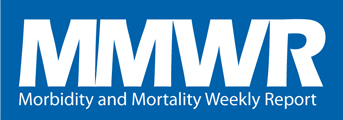MMWR News Synopsis for February 23, 2017

Near Real-Time Surveillance of U.S. Norovirus Outbreaks by the Norovirus Sentinel Testing and Tracking Network — United States, August 2009–July 2015
CDC Media Relations
404-639-3286
Norovirus Sentinel Testing and Tracking (NoroSTAT), a norovirus early warning network, provides near real-time information on norovirus outbreak activity and emerging strains that can be used to make rapid assessments and inform public health responses. Norovirus is the most common cause of vomiting and diarrheal illness in the United States. The Norovirus Sentinel Testing and Tracking (NoroSTAT) network is a collaboration between CDC and sentinel state health departments that provides near real-time information on norovirus outbreak activity and emerging new strains. In 2012, CDC launched NoroSTAT to improve the timeliness and completeness of laboratory and epidemiologic reporting of norovirus outbreaks. This study evaluated NoroSTAT’s ability to inform public health responses. The initial five states participating in NoroSTAT reduced the median reporting time from 22 days to two days for epidemiologic data, and from 21 days to three days for laboratory data. NoroSTAT states also submit more complete outbreak reports that better link epidemiologic and laboratory data.
Continued Endemic Wild Poliovirus Transmission in Security-Compromised Areas — Nigeria, 2016
CDC Media Relations
404-639-3286
The Global Polio Eradication Initiative (GPEI), Nigerian Ministry of Health, the Nigeria Emergency Operations Center and CDC implemented a robust, large-scale immunization response in the Lake Chad Basin region to address the August 2016 WPV outbreak in Borno State, Nigeria. This immediate response was needed to minimize the potential for the outbreak to spread beyond the affected areas. Concerns about undetected WPV and cVDPV transmission remain because surveillance and immunization activities are hindered by conflict-related inaccessibility to approximately 40% of settlement communities in Borno state. In August 2016, after a period of two years of no polio virus detection in Nigeria, four cases of wild polio virus (WPV) were reported in Borno state. These cases occurred among families from security-compromised, inaccessible areas in the state. CDC, the Nigerian Ministry of Health, and partners are conducting a robust, large-scale immunization response in the Lake Chad Basin region following detection of these cases. This immediate response to the confirmed cases minimized the potential that the outbreak would spread beyond the infected areas. However, conflict-related inaccessibility continues to limit surveillance and immunization activities, raising concerns about undetected WPV and circulating vaccine-derived poliovirus (cVDPV) transmission. While there has been an increase in access to populations in Borno state, approximately 40% of settlements remain inaccessible and surveillance and immunization activities are therefore limited.
Notes from the Field:
- Francisella tularensis Type B Infection from a Fish Hook Injury — Minnesota, 2016
Quick Stats:
- Age-Adjusted Percentage of Adults Age ≥65 Years, by Number of Diagnosed Chronic Conditions and Poverty Status — National Health Interview Survey, 2013–2015
###
U.S. DEPARTMENT OF HEALTH AND HUMAN SERVICESexternal icon
CDC works 24/7 protecting America’s health, safety, and security. Whether diseases start at home or abroad, are curable or preventable, chronic or acute, stem from human error or deliberate attack, CDC is committed to respond to America’s most pressing health challenges.
